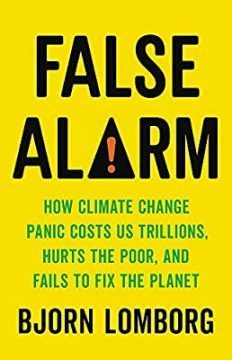by Kevin Lively
The re-election of Donald Trump has prompted a spectrum of reactions among those who are . . . unenthusiastic . . . at this outcome. One common reaction I’ve observed among progressive friends and those who enthusiastically rather than grudgingly vote Democrat is confusion. Many reactions are understandable: dread about the implications for climate change, concern for the human rights of undocumented migrants in the US, or a low-grade panic over the fact that the Supreme Court has literally vested the office with immunity against legal persecution for assassinations, although apparently Obama’s assassinations of US citizens get a pass. Confusion, however, is only explicable as a consequence of a media ecosystem which rarely manages to coherently discuss many of the serious issues in American society, and crucially the role of policy choices by the government under both Democratic and Republican leadership which either failed to address or directly exacerbated these problems.
As any very stable genius glancing at a red hat in public can tell you, the appeal which won Mr. Trump his first democratic victory is ultimately rooted in nostalgia. But nostalgia for what exactly? Was American really greater in the past than it is now? And if so what changed and why?
Well this is a layered question. There is of course the obvious fact that for a non-negligible share of Trump voters this nostalgia is rooted in a time before the Civil Rights Act extended de jure if not de facto equal rights to non-white, non-christian, non-heteronormative non-men. If nothing else one can look at the day one rescinding of Diversity, Equity, Inclusion and Accessibility programs across the federal government and its contractors as an appeasement to that crowd. However, while this discrimination is indisputably a crucial aspect of American society and will continue to severely negatively affect human rights in the US, it is also not the only reason for Trump’s election. This in evidence from the increases Trump made among non-white voters, although the total numbers are still biased towards white men.
For the moment however, I do not want focus specifically on the very important issue of racism and discrimination, and instead look to other causes for support for Trump, although the USA being what it is, it will still permeate the discussion. Let’s start with the short term. Assuming there was a modicum of greatness in Trump’s first term we can look to an April 2024 New York Times / Sienna poll for what voters remembered about 2017-2021. Read more »




 I dipped my toe into
I dipped my toe into 




 The season finale of
The season finale of 






 Throughout history there have been prophets of doom and prophets of hope. The prophets of doom are often more visible; the prophets of hope are often more important. The Danish economist Bjorn Lomborg is a prophet of hope. For more than ten years he has been questioning the consensus associated with global warming. Lomborg is not a global warming denier but is a skeptic and realist. He does not question the basic facts of global warming or the contribution of human activity to it. He does not deny that global warming will have some bad effects. But he does question the exaggerated claims, he does question whether it’s the only problem worth addressing, he certainly questions the intense politicization of the issue that makes rational discussion hard and he is critical of the measures being proposed by world governments at the expense of better and cheaper ones. Lomborg is a skeptic who respects the other side’s arguments and tries to refute them with data.
Throughout history there have been prophets of doom and prophets of hope. The prophets of doom are often more visible; the prophets of hope are often more important. The Danish economist Bjorn Lomborg is a prophet of hope. For more than ten years he has been questioning the consensus associated with global warming. Lomborg is not a global warming denier but is a skeptic and realist. He does not question the basic facts of global warming or the contribution of human activity to it. He does not deny that global warming will have some bad effects. But he does question the exaggerated claims, he does question whether it’s the only problem worth addressing, he certainly questions the intense politicization of the issue that makes rational discussion hard and he is critical of the measures being proposed by world governments at the expense of better and cheaper ones. Lomborg is a skeptic who respects the other side’s arguments and tries to refute them with data.